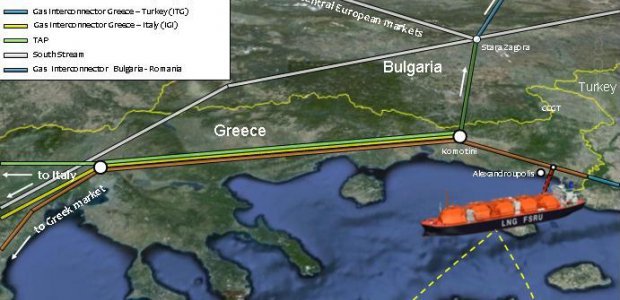The prospective IGB (Greek-Bulgarian Interconnector) project’s third and final market test, entailing the submission of binding bids by gas traders for the allocation of pipeline capacity, appears to be nearing.
The IGB project is directly linked to a plan for the development of a floating LNG termimal in Alexandroupoli, northeastern Greece, as one project would benefit the other.
Bulgaria’s new energy minister Nikolay Pavlov is believed to be maneuvering to make up for lost time as a result of the recent early elections held in Bulgaria. The third-round market test was originally scheduled to take place in March.
In addition, a required FEED (front-end enginnering and design) study concerning the Alexandroupoli LNG terminal is expected to be completed by the summer. This means that Gastrade, the enterprise behind the project, is expected to reach a final investment decision by the end of 2017.
GasLog, a venture headed by shipping magnate Peter Livanos, holds a 20 percent stake in Gastrade. GasLog has transported numerous LNG shipments for US firm Cheniere, interested in exporting gas to Europe via the prospective Alexandroupoli facility.
The Greek city’s floating storage regasification unit (FSRU), supported by the European Commission as an EU project of common interest, which would ensure EU funding, is planned to be developed as a 170,000 cubic-meters facility situated 17.6 kilometers southwest of the Alexandroupoli port.
Returning to the IGB project, a first market test was staged in April, 2016 but was deemed invalid. A second test held last November prompted offers covering 50 percent of the pipeline’s planned capacity, or 1.4 to 1.5 bcm, from DEPA, the Public Gas Corporation, Bulgargaz and Italy’s Edison. All three are involved in the project’s development.





